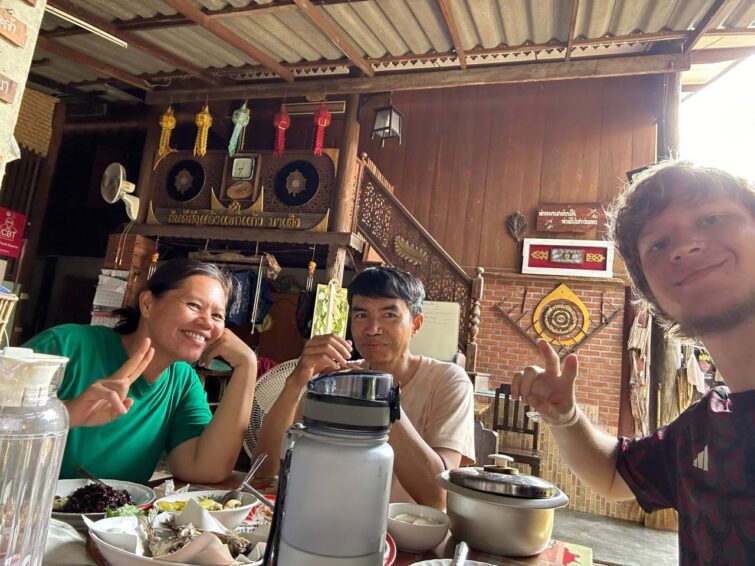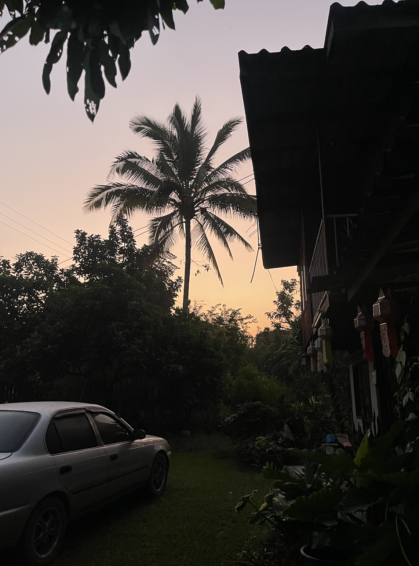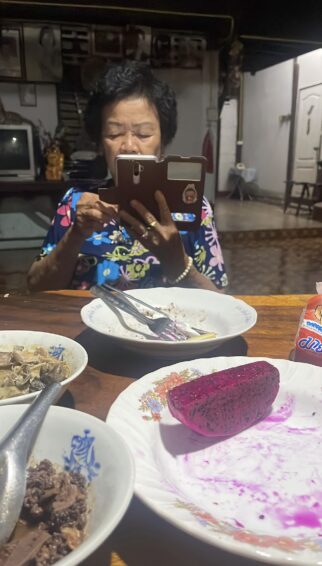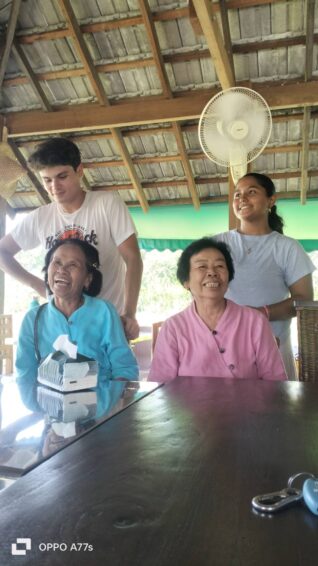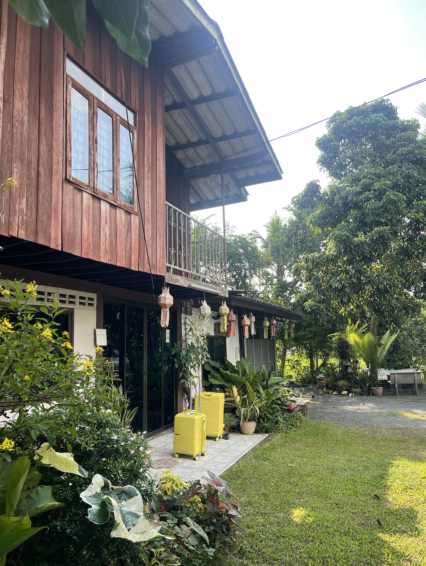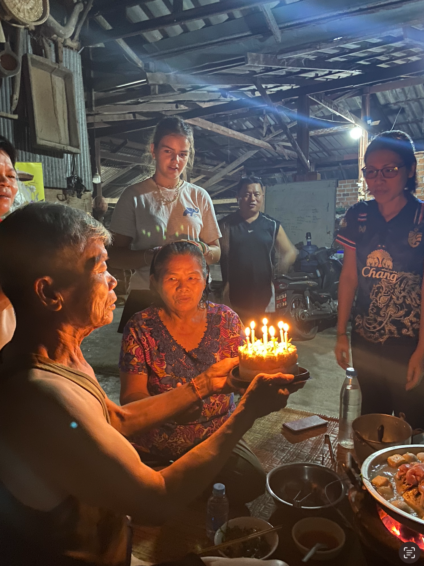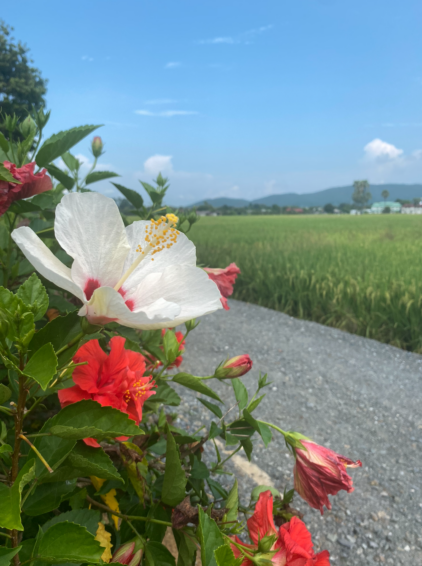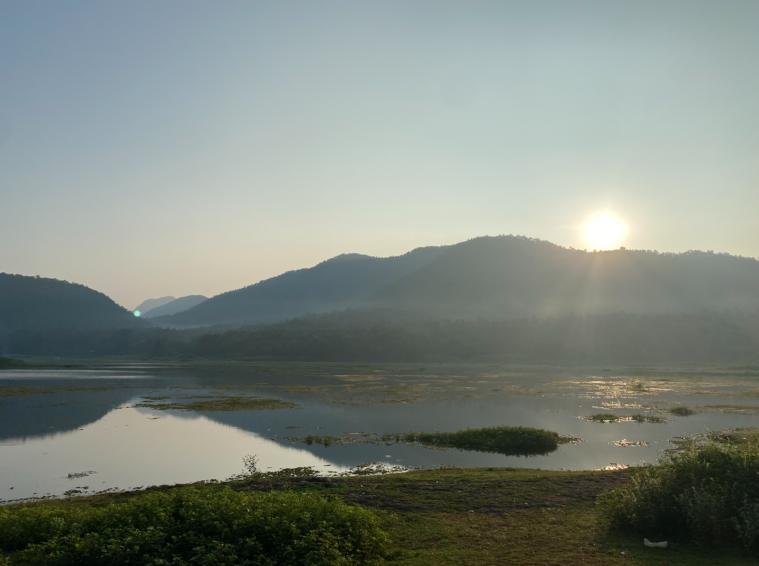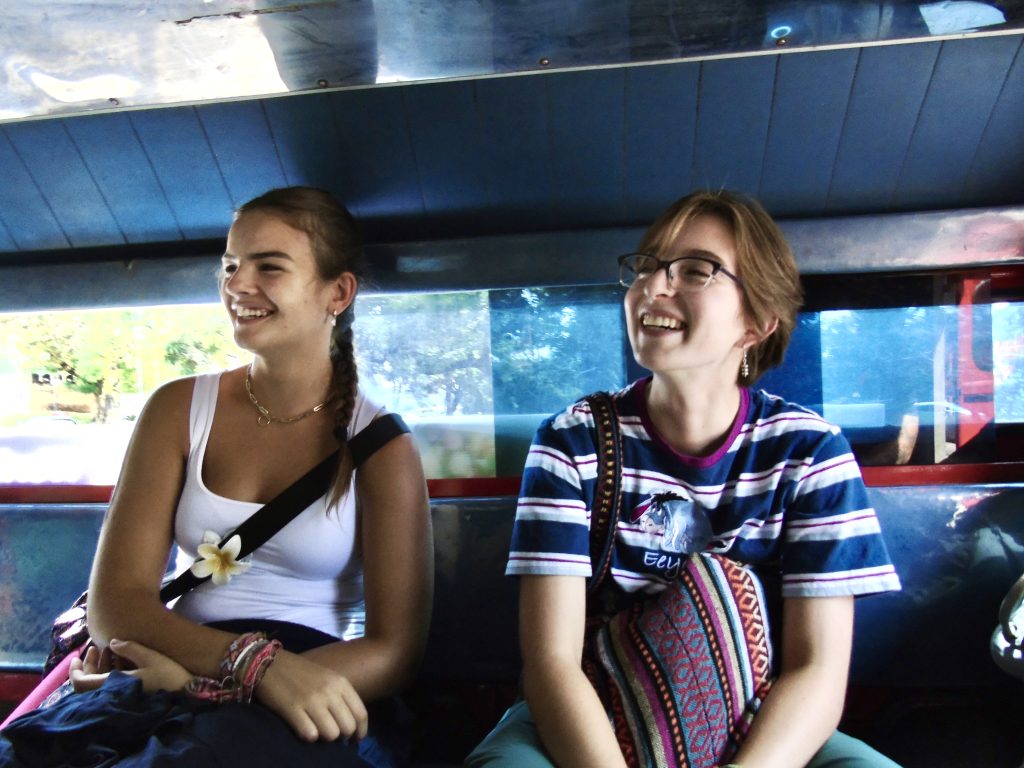by Daniela

A recent fond memory stands out vividly in my mind, one that took place on our first official placement day with the organization. My partner and I had set out to explore the town, aiming to evaluate our plan of action for the upcoming days. We were eager, but admittedly a bit uncertain about how everything would unfold. As we wandered through the streets, we suddenly found ourselves at the heart of the village’s community center. It was bustling with energy as mothers from the village gathered, chatting and going about their daily routines.
The moment they spotted us, everything shifted. With warm smiles, they gestured for us to sit with them. We happily obliged, unsure of what to expect but feeling welcomed nonetheless. As soon as we sat down, the conversations began—completely in Thai. At first, I thought we might struggle to connect, given the language barrier, but what happened next truly surprised me. While we occasionally had to rely on Google Translate for certain words, we found ourselves understanding a good portion of what was being said, and more importantly, they understood us too.
It was in this moment that I realized how much we had grown since our arrival. Not only had we picked up enough Thai to communicate, but we were also starting to grasp the nuances of the local culture. The openness of the villagers, their warmth, and their genuine curiosity to connect with us made the experience unforgettable.
They laid out a simple but delicious offering of sticky rice, and we spent the next while just chatting. There was no rush, no agenda—just the beauty of human connection in its purest form. I felt completely immersed, not just in the language, but in the life of the village. It was a moment where the boundaries between us—foreigners in an unfamiliar place—seemed to blur, and we were just people, sharing stories, smiles, and food.
Originally posted here.



